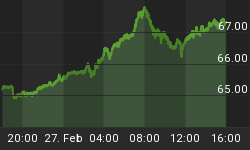Monetarism, In a September 2 op-ed commentary in the WSJ ("Summer of Economic Discontent"), Michael Boskin, former chairman of the President's Council of Economic Advisers under Bush 41, compares the anemic current economic recovery with vibrant ones, such as the recovery that commenced in the first quarter of 1983, when Martin Feldstein was chairman of President Reagan's Council of Economic Advisers. Mr. Boskin intimates that the reason the current economic recovery is so feeble is because of economic policies being pursued by the current presidential administration. I am not here to argue for or against current policies, but merely to suggest that there is another or additional reason for the relative weakness in the first year of this current recovery, a reason that might also explain the relative weakness in the first year of the recovery that commenced in the second quarter of 1991. Mr. Boskin was the chairman of the President's Council of Economic Advisers at the time of the 1991 economic recovery. I find it curious that he makes no reference to that recovery when critiquing the current recovery.
If you have been reading my recent commentaries, you probably have guessed the reason I am about to propose as playing a large role in restraining the pace of the current recovery - the unprecedented contraction in nominal and real bank credit in the post-WWII era. Mind you, I am not suggesting that this is the only factor - just an important one.
Chart 1 shows the year-over-year percent changes in real GDP and real bank credit one year after the final quarter of three recessions - Q4:1982, Q1:1991 and Q2:2009 (not yet designated so by the National Bureau of Economic Research). The relatively robust economic recovery in the four quarters ended 1983:4 of 7.7% growth in real GDP was accompanied by a 6.4% increase in real bank credit. The economic recovery that commenced in the second quarter of 1991 produced real GDP growth in its first year of only 2.6%. Notice though, real bank credit grew by only 1.4% in this recovery. In the first four quarters of the current economic recovery, real GDP is up 3.0%, not materially different than the 2.6% real GDP growth in the recovery commencing in the second quarter of 1991. In the first four quarters of the current recovery, real bank credit has contracted by 7.9%. The median four-quarter percentage chain in real bank credit from 1960:Q1 through Q2:2010 is 4.78%. So, the percentage change in real bank credit in the four quarters ended 1983:4 was above the median; the percentage changes in real bank credit in the four quarters ended 1992:Q1 and 2010:Q2 were below the median.
Chart 1
Obviously, there are other factors that explain the behavior of real GDP growth than just the behavior of real bank credit. If this were not the case, then the current economic recovery could not have achieved even the modest 3.0% growth in real GDP in its first four quarters. But the contraction in real bank credit in the first four quarters of this current economic recovery certainly could be considered a "headwind" to the recovery. I use the term "headwind" because this is exactly the term coined by Fed Chairman Greenspan with respect to weak credit creation to help explain the lackluster economic recovery that commenced in the second quarter of 1991. Do you remember some other terms that entered the economic lexicon during that period - terms such as "double-dip" and "jobless recovery"?
Speaking of jobless recoveries, I would like to refresh Mr. Boskin's memory of the private-sector job creation during the first four quarters of the recovery that commenced in the second quarter of 1991 with job creation for comparable periods in other recoveries, starting with the 1961 recovery. These data are shown in Chart 2, which was created by my colleague, Asha Bangalore. Yes, private job creation so far in the current recovery pales in comparison to the average since 1961. But private job creation in the first four quarters of the current recovery exceeds that of the 1991 recovery, the one in which Michael Boskin was the president's chief economic adviser.
Chart 2
Perhaps Mr. Boskin is not suffering so much from amnesia, as I have suggested, but rather is experiencing an episode of déjà vu. He intimates that if current economic trends continue, President Obama will have a difficult time being elected to second term in 2012. Yes, just as President George Herbert Walker Bush was unable to win a second term in 1992, which terminated Mr. Boskin's tenure as chairman of the President's Council of Economic Advisers.
Paul Kasriel is the recipient of the 2006 Lawrence R. Klein Award for Blue Chip Forecasting Accuracy















